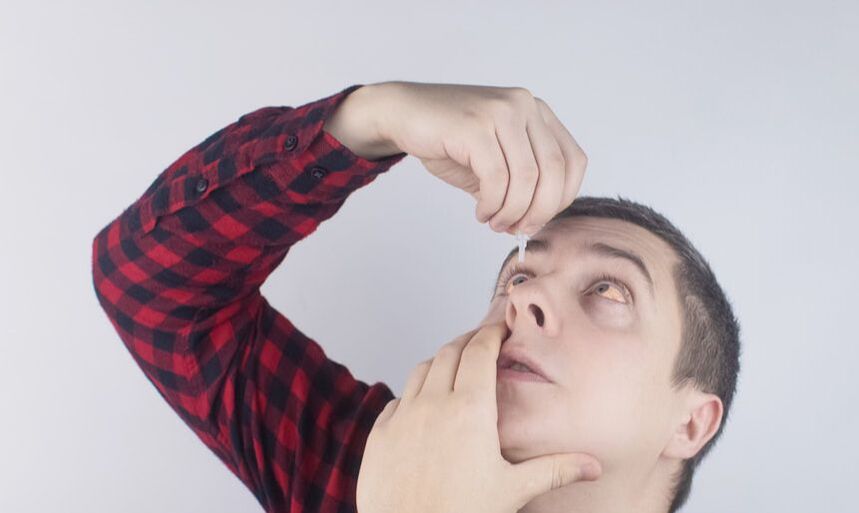SymptomsThe symptoms of gritty eyes can range from mild to severe. It may feel as if a small particle of dust or sand is in the eyes. In many cases, that gritty feeling affects both eyes. In addition to a scratchy sensation, other symptoms of gritty eyes may include:
Causes of gritty eyesThere are a number of causes for gritty eyes. Sometimes, the cause is obvious, such as when you get something in your eyes, but in other cases, the reason for gritty eyes may be something you did not consider. Possible causes of gritty eyes include the following: Dry eye syndrome: One of the most common causes of a gritty feeling is dry eye syndrome. It occurs when you do not produce enough tears. Dry eye syndrome can occur for several reasons, including hormonal changes, wearing contacts, and side effect of medications. If the condition becomes severe enough, it can increase your chances of an eye infection. Allergies: Allergies often affect the eyes. An allergy occurs when the immune system overreacts to a substance, such as pet dander, pollen, or smoke. In addition to a gritty feeling, allergies often cause itchiness, tearing, and burning. A corneal scratch: A scratch on the surface of the cornea can occur from makeup brushes, a mascara wand, and fingernails. You probably will realize you scratched your cornea when it happens. Medication side effects: Certain medications can affect tear production and lead to dry eyes, which in turn causes a gritty feeling in the eyes. Medications may include:
If the gritty feeling in the eyes is significant, it is best to talk with your doctor about medication alternatives. Do not stop taking a prescribed medication until you speak with your doctor. Sunburned eyes: Just like your skin can become sunburned after too much exposure to UV light, your eyes can also develop sunburn. The technical term for a sunburned cornea is photokeratitis. It can lead to redness, blurry vision, and gritty eyes. According to the Cleveland Clinic, symptoms usually only last a few hours to a few days. TreatmentsTreatment for gritty eyes depends on the cause. For example, if a small particle is in the eyes, rinsing the eye out to remove the dust, dirt, or sand will help. If someone has allergies, taking an antihistamine before exposure to the allergen may prevent gritty eyes. But in general, treatment may include the following:
Use artificial tears: The main treatment for gritty eyes is using artificial tears about three times a day. Talk to your eye doctor about whether you should use drops that are preservative-free. Use a warm compress: Applying a warm compress over the eye a few times a day can also ease discomfort. Rinse your eyes: If you have allergies, wash your face and rinse your eyes with warm water to remove pollen or other allergens. Give your eyes a break: Eye strain from digital devices can add to dry eyes and irritation. Take a break from your phone, laptop, and computer. Prescription eye drops: If gritty eyes are severe, your eye doctor may recommend prescription eye drops to help you make more tears. Don’t sleep in contacts: Sleeping in contacts can make gritty eyes worse. Follow the manufacturer’s recommendations for how long you can wear lenses. Gritty eyes are usually nothing to worry about. If home treatment does not help, see your eye doctor. If you would like to ask whether an appointment with one of our eye doctors would be appropriate at this time, call our office at 508-746-8600. Comments are closed.
|
EYE HEALTH BLOGCategories
All
Archives
July 2024
|
|
Kadrmas Eye Care New England
55 Commerce Way, Plymouth, MA 02360
14 Tobey Road, Wareham, MA 02571 133 Falmouth Road (Rt 28), Mashpee, MA 02649 |
Phone Number:
1-508-746-8600 Hours: Monday through Friday — 8 AM – 4:30 PM |


 RSS Feed
RSS Feed
